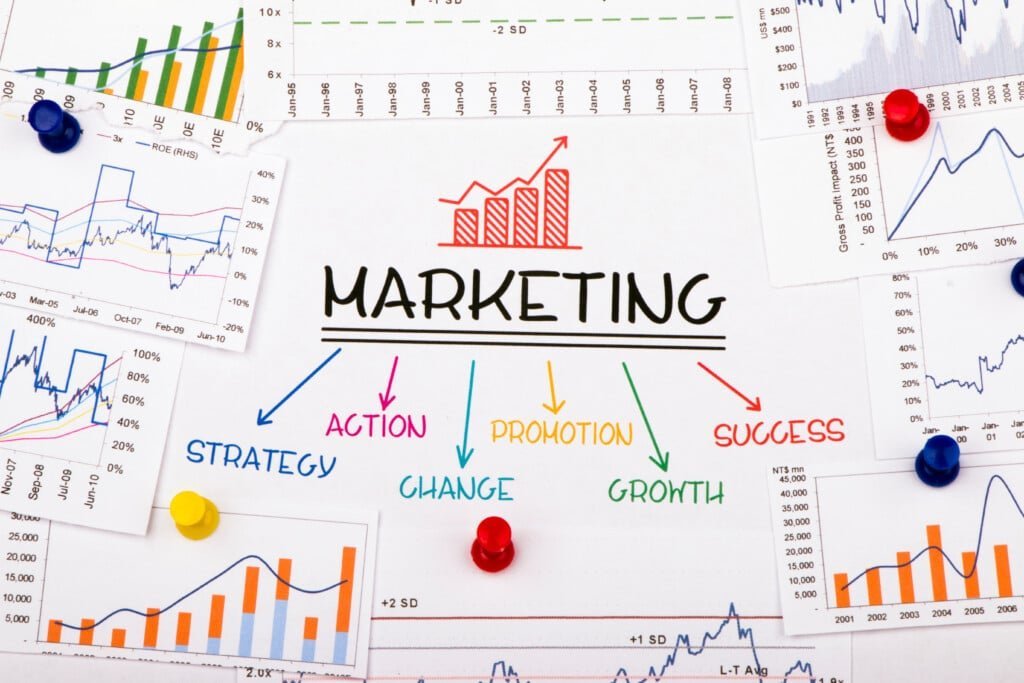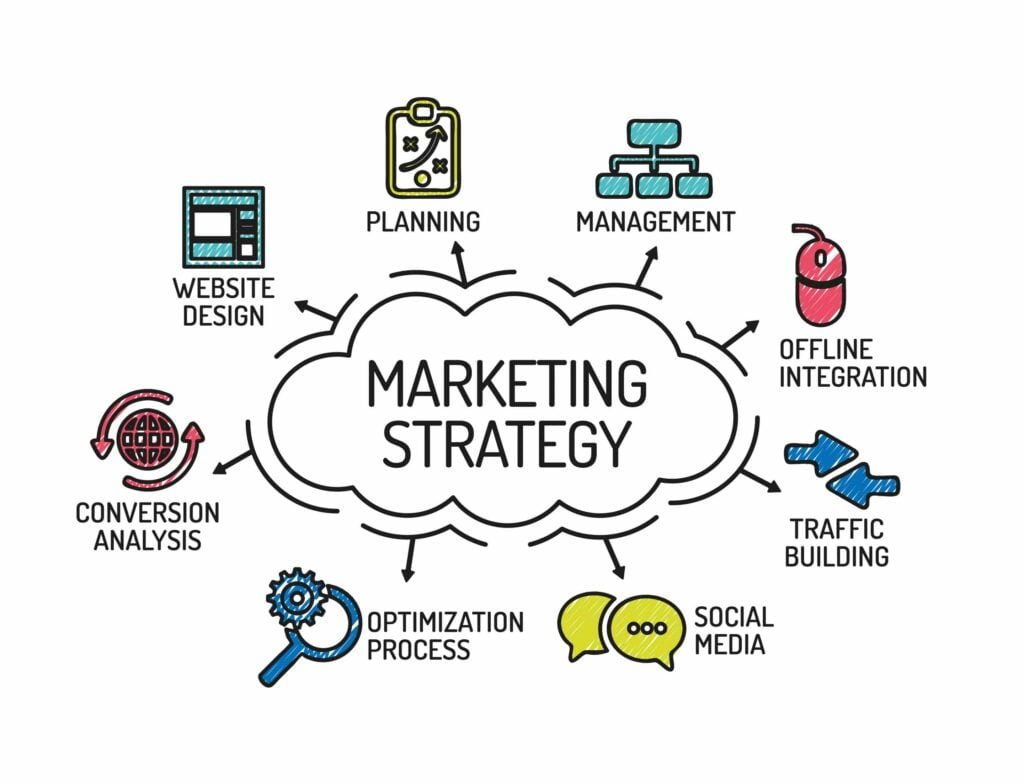In the realm of entrepreneurship, lifestyle business marketing has emerged as a compelling alternative to traditional profit-driven ventures. These businesses prioritize personal fulfillment, flexibility, and the alignment of personal values with professional pursuits. Lifestyle business marketing plays a crucial role in attracting customers, building a loyal following, and achieving sustainable success.
What is lifestyle business marketing and why you should consider it
Lifestyle business marketing is the process of promoting your lifestyle business to your target audience, using strategies and tools that align with your values, goals, and vision. A lifestyle business is a type of business that allows you to pursue your passions, interests, and hobbies while generating enough income to support your desired lifestyle. Unlike a traditional business, a lifestyle business is not focused on maximizing profits, growth, or scalability, but rather on achieving personal satisfaction, freedom, and flexibility.
You should consider lifestyle business marketing if you want to:
- Create a loyal and engaged fan base that shares your passion, vision, and values.
- Differentiate yourself from your competitors and stand out from the crowd.
- Attract more referrals and word-of-mouth marketing from your satisfied customers.
- Build trust and credibility with your audience and establish yourself as an authority in your niche.
- Enjoy more creative freedom and flexibility in your marketing campaigns and content.
- Have more fun and fulfillment in your marketing activities and business operations.
I hope this helps you understand what is lifestyle business marketing and why you should consider it. If you have any more questions or comments, please feel free to ask.
My Lifestyle Plan: Step Guide to Creating a Life You Love
The benefits and challenges of lifestyle business marketing
Lifestyle business marketing offers a unique blend of personal fulfillment and professional success. However, it also comes with its own set of challenges. Understanding these benefits and challenges is crucial for entrepreneurs seeking to embark on this rewarding journey.
Benefits of Lifestyle Business Marketing:
- Alignment with Personal Values: Lifestyle businesses allow entrepreneurs to align their work with their values, creating a sense of purpose and satisfaction.
- Flexible Work-Life Balance: These businesses offer greater flexibility in terms of work hours, location, and workload, allowing entrepreneurs to prioritize their personal lives.
- Entrepreneurial Fulfillment: Lifestyle businesses provide a sense of fulfillment by allowing entrepreneurs to pursue their passions and make a positive impact on the world.
- Authenticity and Passion: Lifestyle businesses are built on genuine passion, which translates into authentic marketing that resonates with target audiences.
- Targeted Marketing: By focusing on a niche market aligned with their interests, lifestyle businesses can effectively target their marketing efforts.
- Word-of-mouth Marketing: Satisfied customers are more likely to recommend lifestyle businesses to their networks, leading to valuable word-of-mouth marketing.
My Lifestyle Networking: Building a Successful Network
Challenges of Lifestyle Business Marketing:
- Limited Resources: Lifestyle businesses often have limited budgets and resources compared to larger companies, requiring creative and cost-effective marketing strategies.
- Competition: Lifestyle businesses may face competition from larger, established businesses with more extensive marketing capabilities.
- Measuring Success: Defining and measuring success in lifestyle businesses can be challenging due to the emphasis on personal fulfillment rather than solely financial metrics.
- Work-Life Balance: While lifestyle businesses offer flexibility, it can be challenging to maintain a healthy work-life balance, as the lines between work and personal life can blur.
- Marketing Expertise: Entrepreneurs may not have extensive marketing experience, requiring them to acquire new skills or seek external support.
- Adapting to Market Changes: Lifestyle businesses may need to adapt quickly to changing market trends and customer preferences to remain competitive.
By carefully considering these benefits and challenges, entrepreneurs can make informed decisions about whether lifestyle business marketing is the right path for them. With a clear understanding of the unique opportunities and obstacles involved, they can develop effective strategies to build successful and fulfilling lifestyle businesses.
My Lifestyle Definition: What Does It Mean to Live a Lifestyle?
The best strategies and tools for lifestyle business marketing

The best strategies and tools for lifestyle business marketing are those that suit your lifestyle business needs and goals. Some of the best strategies and tools are:
- Define your lifestyle business goals and vision. You need to have a clear and compelling vision of what you want to achieve with your lifestyle business, and how you want to impact your customers and the world. You also need to set specific, measurable, achievable, relevant, and time-bound (SMART) goals for your lifestyle business marketing, and track your progress and performance.
- Find your ideal lifestyle business niche and audience. You need to identify and understand your ideal lifestyle business niche and audience, and their needs, wants, problems, and desires. You also need to research and analyze your competitors and their strengths and weaknesses and find your unique selling proposition (USP) and competitive advantage.
- Create a lifestyle business marketing plan and budget. You need to create a comprehensive and realistic lifestyle business marketing plan and budget, that outlines your marketing objectives, strategies, tactics, channels, tools, resources, costs, and timelines. You also need to review and update your lifestyle business marketing plan and budget regularly and make adjustments as needed.
- Execute and optimize your lifestyle business marketing campaigns. You need to execute and optimize your lifestyle business marketing campaigns, using the most effective and efficient marketing channels and tools for your lifestyle business niche and audience. Some of the most popular and powerful marketing channels and tools for lifestyle business marketing are:
- Content marketing. Content marketing is the creation and distribution of valuable, relevant, and consistent content, such as blog posts, videos, podcasts, ebooks, webinars, etc., that attracts, educates, entertains, and converts your audience into customers and advocates. Content marketing can help you showcase your personality, expertise, and value proposition, and build trust and loyalty with your audience. Some of the best tools for content marketing are WordPress, Medium, YouTube, Anchor, Canva, etc.
- Social media marketing. Social media marketing is the use of social media platforms, such as Facebook, Instagram, Twitter, LinkedIn, Pinterest, etc., to connect, communicate, and engage with your audience, and increase your brand awareness, reach, and traffic. Social media marketing can help you create a community and a conversation around your lifestyle business, and generate more referrals and word-of-mouth marketing. Some of the best tools for social media marketing are Buffer, Hootsuite, Later, Sprout Social, etc.
- Email marketing. Email marketing is the use of email to send personalized and targeted messages, such as newsletters, promotions, offers, etc., to your audience, and nurture them through the customer journey. Email marketing can help you increase your conversions, retention, and loyalty, and create a long-term relationship with your audience. Some of the best tools for email marketing are Mailchimp, ConvertKit, AWeber, ActiveCampaign, etc.
- Search engine optimization (SEO). SEO is the process of improving your website’s visibility and ranking on search engines, such as Google, Bing, etc., for relevant keywords and phrases that your audience is searching for. SEO can help you drive more organic and qualified traffic to your website, and increase your authority and credibility in your niche. Some of the best tools for SEO are Moz, SEMrush, Ahrefs, Google Analytics, etc
How to measure and improve your lifestyle business marketing results

To succeed in your lifestyle business marketing, you need to measure and improve your lifestyle business marketing results, using the most relevant and reliable metrics and indicators for your lifestyle business goals and vision. Some of the most important metrics and indicators for lifestyle business marketing are:
- Traffic. Traffic is the number of visitors that come to your website or other online platforms, from various sources and channels. Traffic can help you measure your brand awareness, reach, and popularity, and identify your best-performing and under-performing marketing channels and campaigns. You can use tools like Google Analytics, SimilarWeb, etc., to measure your traffic.
- Engagement. Engagement is the number and quality of interactions that your audience has with your content, such as likes, comments, shares, views, downloads, etc. Engagement can help you measure your audience’s interest, satisfaction, and loyalty, and identify your most and least engaging content and topics. You can use tools like BuzzSumo, Social Blade, etc., to measure your engagement.
- Conversion. Conversion is the number and percentage of your audience that takes a desired action, such as signing up, subscribing, buying, etc., on your website or other online platforms. Conversion can help you measure your audience’s behavior, intention, and value, and identify your most and least effective marketing strategies and tactics. You can use tools like Google Optimize, Unbounce, etc., to measure and improve your conversion.
- Revenue. Revenue is the amount of money that you generate from your lifestyle business, from various sources and streams. Revenue can help you measure your lifestyle business’s profitability, sustainability, and scalability, and identify your most and least profitable products and services. You can use tools like QuickBooks, Wave, etc., to measure and manage your revenue.
My Lifestyle Business: A Paradigm Shift in Entrepreneurship
To improve your lifestyle business marketing results, you need to:
- Analyze your data and feedback. You need to collect and analyze your data and feedback from your metrics and indicators and your customers and audience. You need to identify your strengths and weaknesses, opportunities and threats, and gaps and areas for improvement in your lifestyle business marketing.
- Implement changes and actions. You need to implement changes and actions based on your data and feedback analysis, and your lifestyle business goals and vision. You need to test and experiment with different marketing strategies and tactics and optimize your marketing channels and tools for better performance and efficiency.
- Monitor and evaluate your results. You need to monitor and evaluate your results from your changes and actions and compare them with your previous results and your expected results. You need to measure and assess the impact and effectiveness of your changes and actions, and the return on investment (ROI) of your lifestyle business marketing.
My Lifestyle Business Plan:10 Steps to Creating a Successful One
Conclusion
Lifestyle business marketing is a rewarding and challenging endeavor, that can help you achieve your lifestyle business dreams and goals. By following the best strategies and tools for lifestyle business marketing, and measuring and improving your lifestyle business marketing results, you can create a successful and satisfying lifestyle business that aligns with your passions, interests, and hobbies. We hope this article has given you some useful insights and tips on how to succeed in your lifestyle business marketing. If you have any questions or comments, please feel free to share them below. Thank you for reading and happy lifestyle business marketing!
Questions and Answers
What is Mi’s lifestyle business?
Mi’s lifestyle business focuses on personalized marketing strategies that seamlessly integrate with Mi’s daily life. The benefits include a genuine personal connection with customers, flexibility to adapt to changing circumstances, and passion-driven marketing fueled by Mi’s authentic interests. Niche-focused efforts foster community building, while cost-efficient resource optimization is a priority. However, challenges include time constraints, scalability issues, and the dependency on Mi’s unique skills. Striking a balance between work and personal life is crucial. In essence, Mi’s lifestyle business marketing is about authentically connecting with a niche audience while navigating the challenges inherent in this personalized entrepreneurial journey.
Why does lifestyle marketing work?
Lifestyle Business Marketing works due to its ability to forge authentic connections. Tailoring messages to align with personal interests creates a genuine rapport with the audience. The flexibility inherent in lifestyle businesses allows quick adaptation to personal changes or market trends, fostering a dynamic and responsive approach. This passion-driven marketing resonates with customers who appreciate authenticity, while the niche focus facilitates community building. While challenges like time constraints and scalability exist, the cost efficiency and targeted strategies of Lifestyle Business Marketing enable a distinctive brand presence. Overall, it thrives on the fusion of personal lifestyle and strategic marketing, fostering a unique and resonant brand.

